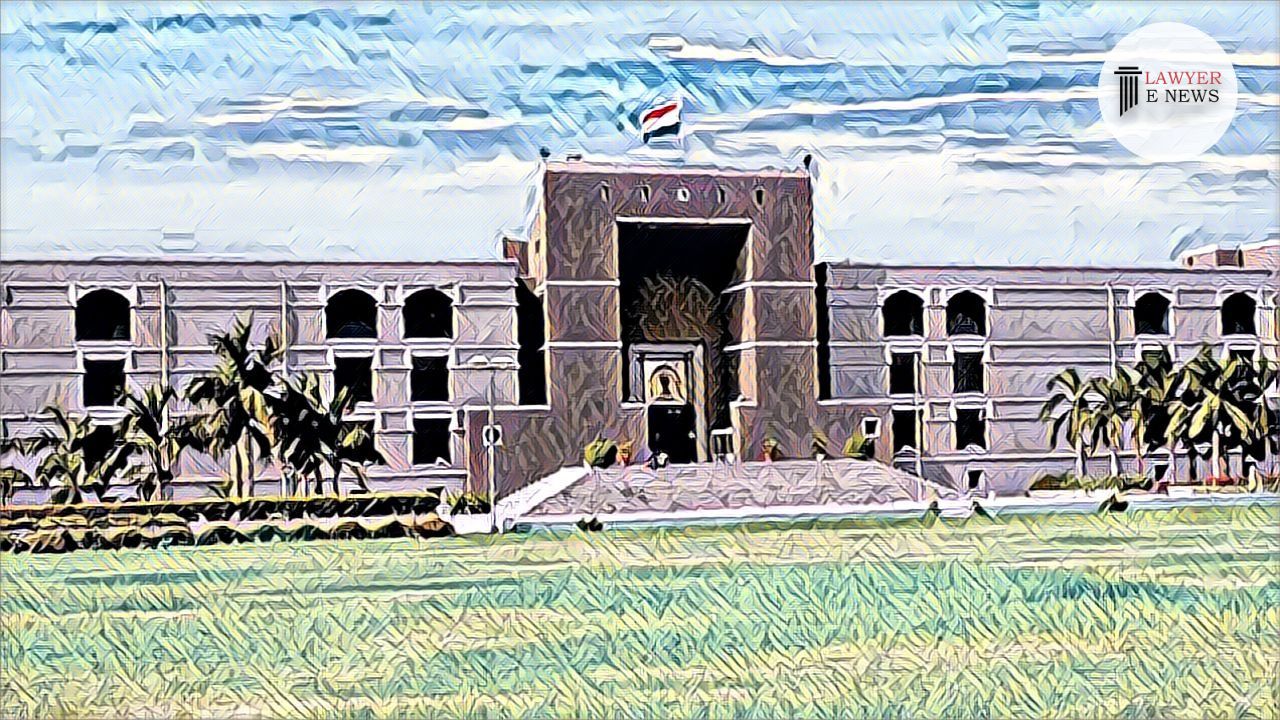-
by Admin
15 February 2026 2:36 AM



Acquittal of Rayjibhai Bhagabhai Bariya upheld due to lack of substantial evidence; court emphasizes the burden of proof in criminal cases.
The High Court of Gujarat has dismissed an appeal by the State challenging the acquittal of the accused in a 1998 murder case. The appeal, which sought to overturn the trial court’s decision, was rejected by a bench comprising Justices Nirzar S. Desai and Hasmukh D. Suthar. The court found no substantive evidence to support the prosecution's claims against the surviving accused, particularly concerning charges under Sections 34 and 201 of the Indian Penal Code.
On July 16, 1998, Parvatbhai Hathibhai filed an FIR reporting the death of his cousin, Hirabhai Titabhai Chavda, alleging it was initially presented as an accident. The incident involved Hirabhai being found dead near Charan Gam bus stand after being allegedly poisoned and assaulted by the accused. The investigation suggested that Hirabhai was murdered and his body placed to simulate an accident. The accused, Mangalbhai Jethabhai Patel, Dilipbhai @ Kalubhai Mangalbhai Patel, and Rayjibhai Bhagabhai Bariya, were arrested and charged under various sections of the IPC, including Section 302 (murder) and Section 201 (causing disappearance of evidence).
The High Court scrutinized the evidence presented by the prosecution, particularly the role of the surviving accused, Rayjibhai Bhagabhai Bariya. The court noted that the trial court had acquitted the accused due to the lack of credible evidence directly implicating them in the murder.
"On perusal of the record, we found that there are no allegations against the accused respondent no. 3 to the effect that he has assaulted the deceased Hirabhai and that he was carrying any weapons," observed the bench.
The prosecution contended that Rayjibhai had misled the first informant and aided in projecting the murder as an accident. However, the court found these allegations insufficient to establish his guilt beyond a reasonable doubt.
"The only role attributed to the surviving respondent no. 3 Rayjibhai was that he was present at the scene of the offence and tried to destroy the evidence by projecting the murder of the deceased as an accident," the judgment stated.
The court emphasized the principles of criminal jurisprudence, stating that an appellate court should not overturn an acquittal unless the trial court's findings are perverse or unsupported by evidence.
"It is a cardinal principle of criminal jurisprudence that in an acquittal appeal if another view is possible, then also, the appellate court cannot substitute its own view by reversing the acquittal into conviction, unless the findings of the trial court are perverse, contrary to the material on record, palpably wrong, manifestly erroneous, or demonstrably unsustainable," the bench reiterated.
Justice Desai, delivering the judgment, noted, "The findings recorded by the learned trial court are not perverse, contrary to material on record, palpably wrong, manifestly erroneous, or demonstrably unsustainable".
The High Court's decision to uphold the acquittal underscores the importance of substantial and direct evidence in criminal convictions. By affirming the trial court’s judgment, the court highlighted the necessity of a thorough and credible prosecution in securing convictions, thereby reinforcing the legal standard required for overturning acquittals. This ruling serves as a significant reference for future cases involving appeals against acquittals based on insufficient evidence.
Date of Decision: May 21, 2024
State of Gujarat vs. Mangalbhai Jethabhai Patel & Ors.
